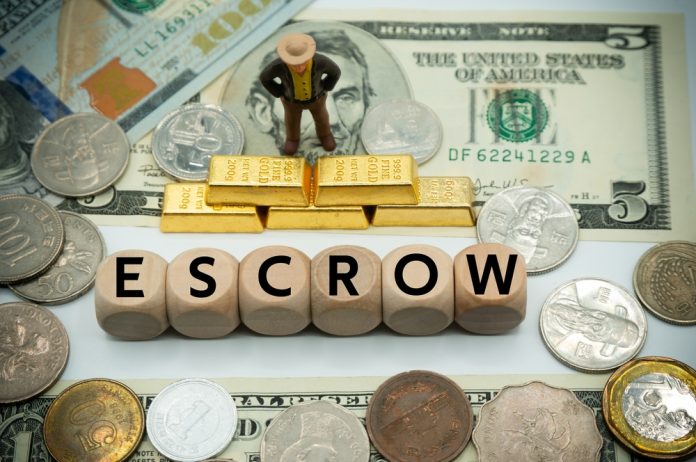If you’ve ever started the home buying or selling process and heard the word “escrow” tossed around like everyone should know what it means, you’re not alone. Escrow is one of those real estate terms that sounds technical—and maybe even a little intimidating—but it plays a vital role in making sure transactions go smoothly and fairly.
In fact, escrow is kind of like the unsung hero of a real estate deal. It’s working quietly behind the scenes, protecting both the buyer and the seller, ensuring that no money changes hands until everyone holds up their end of the bargain.
In this article, we’ll take a deep dive into what escrow actually is, why it exists, and how it helps make real estate transactions safer for everyone involved.
Escrow Defined: A Neutral Third Party
At its core, escrow is a financial arrangement where a third party—someone who is neutral and not part of the deal—holds something of value (typically money or documents) until certain agreed-upon conditions are met. In real estate, that “something” is usually a buyer’s earnest money deposit and the final purchase funds. The “certain conditions” include completing inspections, securing financing, getting an appraisal, and finalizing the paperwork.
Think of escrow as a middleman with a vault. When a buyer makes an offer on a house and that offer is accepted, the buyer puts down an earnest money deposit, which is held in escrow. This shows the seller that the buyer is serious, but it also protects the buyer. That money won’t go to the seller unless everything moves forward correctly. If the deal falls through for a valid reason outlined in the contract—like a failed inspection or a loan denial—the buyer can get that money back.
Escrow ensures that no one gets burned during the transaction. It prevents sellers from skipping town with a buyer’s money, and it stops buyers from backing out last minute without consequences. The escrow holder (often a title company, escrow company, or attorney, depending on your state) follows a strict set of instructions agreed upon by all parties to make sure everything happens by the book.
Why Escrow is So Important

Escrow might seem like just another step in the process, but it plays a crucial role in keeping real estate deals fair and secure. Without escrow, there’d be a lot more room for risk—and potentially, a lot more lawsuits. By acting as a neutral safeguard, escrow gives both buyers and sellers peace of mind that no money or keys will change hands until all the agreed-upon steps have been completed.
For buyers, escrow ensures that your deposit is protected and that you’re not paying for a home with unresolved issues. It also gives you time to complete important due diligence—such as the home inspection, title search, and mortgage underwriting—without worrying about the seller taking the deposit and backing out.
For sellers, escrow is a way to confirm that the buyer has the funds and is following through. You don’t hand over the deed or move out of your house until the money is officially in escrow, and everything has been verified. The escrow process gives structure to what can otherwise be a very stressful and emotional transaction for both parties.
It’s also worth noting that escrow doesn’t end when the keys are exchanged. For many homeowners with a mortgage, an escrow account continues to manage property tax and homeowner’s insurance payments. More on that in a moment.
Escrow After the Sale: Managing Ongoing Payments
In addition to its role during the buying and selling process, escrow often sticks around long after you’ve closed on your home—especially if you have a mortgage. Lenders typically set up an escrow account to hold monthly contributions from your mortgage payment that go toward your property taxes and homeowner’s insurance. That way, when those big bills come due, the lender can pay them on your behalf from the escrow account.
This helps protect the lender, who has a financial interest in making sure the home is insured and that no tax liens are placed against the property. But it also helps homeowners, who don’t have to budget separately for these large, infrequent expenses. Instead, they’re rolled into your regular monthly mortgage payment.
Each year, your lender will review your escrow account to ensure there’s enough money to cover your tax and insurance bills. If there’s a shortfall, your monthly payment might go up. If there’s a surplus, you might get a refund check. While that can be a little frustrating, it’s part of the system designed to keep your home protected and your payments on track.
Who Manages Escrow and How Does It Work?

Escrow is typically managed by a licensed escrow officer or a title company, depending on your location. In some states, attorneys handle the process. Once the purchase agreement is signed, the escrow agent receives a copy and opens an escrow account. They then follow a precise list of instructions from both the buyer and the seller (as outlined in the purchase agreement) to handle the exchange of funds, documents, and other required items.
Throughout the escrow period, the escrow officer is in constant communication with the buyer, seller, real estate agents, mortgage lender, and sometimes even the home inspector or appraiser. They track deadlines, manage funds, and confirm when all conditions have been met. Once everything is complete, the escrow agent distributes funds, records the deed, and officially closes the transaction.
It’s a highly regulated process with checks and balances in place to protect everyone involved. While it might feel like just another step in an already overwhelming journey, escrow is a critical part of making sure your real estate transaction is secure, legal, and successful.
Escrow is Your Safety Net
If you’re feeling a little overwhelmed by the idea of escrow, you’re not alone. Real estate is filled with unfamiliar terms and processes, but the good news is—you don’t need to be an expert to make smart decisions. You just need a good team, a little bit of knowledge, and the right resources to guide you through it.
Escrow might sound complicated, but at its heart, it’s a simple concept: protect everyone until the deal is done. Whether you’re buying your first home or selling your third, understanding how escrow works can help you feel more confident and in control.

